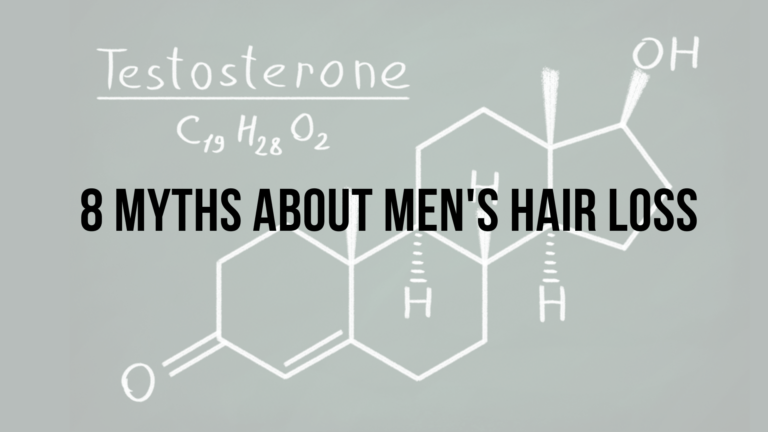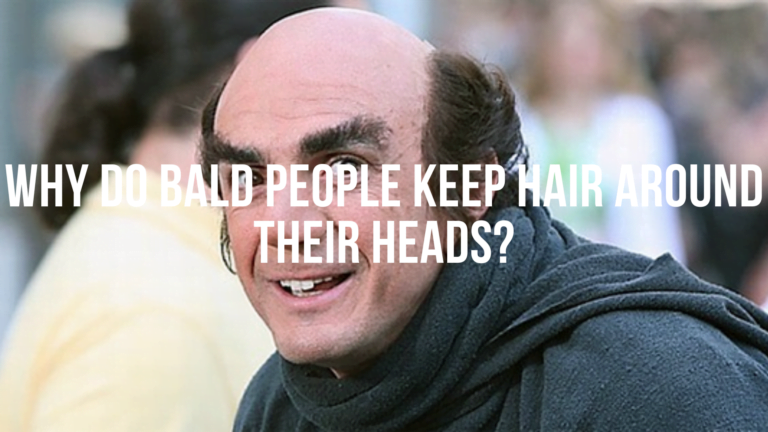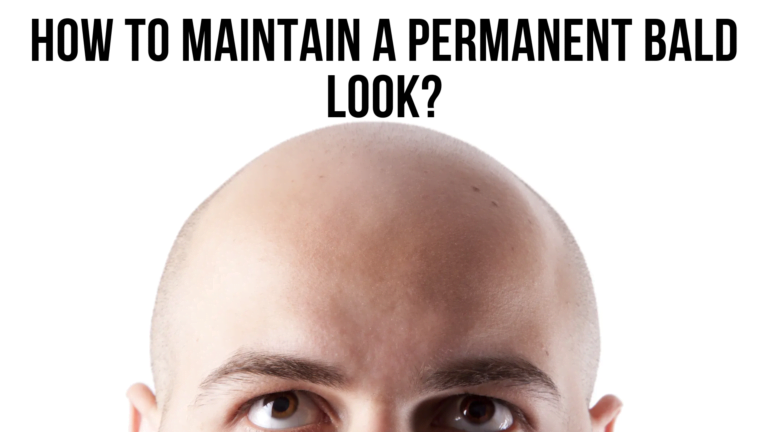This post may contain affiliate links. If you click one, I may earn a commission at no cost to you. As an Amazon Associate I earn from qualifying purchases.
We’re not all born with the same regarding our hair. So where can you turn to find someone to blame for your misfortunes? The answer undoubtedly lies in your genome. We take a look at the preconceived notions surrounding the hair system.
Looking at your father’s hopelessly bare skull, you wonder if you’re predestined to end up bald. One in two men inherits androgenic alopecia, commonly known as baldness. According to some preconceived ideas, it’s all your mother’s fault. Should you really blame her at the next family dinner?
Read until the end to find out.
Table of Contents
Understanding the genetics of baldness
Baldness is a common condition that affects both men and women. Many people wonder if they are at risk of baldness if their father is bald. Genetics play a significant role in determining whether or not someone will experience hair loss.
While it is true that having a bald father can increase your chances of developing baldness, it is not the only factor to consider. There are several genes that contribute to the development of baldness, and these genes can be inherited from both parents.
It is important to remember that genetics is just one piece of the puzzle when it comes to baldness. Other factors, such as hormonal changes and lifestyle choices, can also influence hair loss.
The role of family history in baldness
Baldness is often thought to be passed down through the genes, so it’s natural to wonder if you’re at risk of losing your hair if your father is bald.
Family history does play a role in baldness, but it’s not the only factor. While having a bald father may increase your chances of developing baldness, it’s not a guarantee. Other factors such as age, hormones, and lifestyle choices also contribute to hair loss.
If your father is bald, it’s important to understand that you may have a genetic predisposition to baldness. This means that you have a higher chance of developing baldness than someone without a family history of hair loss.
However, it’s not a certainty. Many people with bald fathers have a full head of hair, while others without a family history of baldness experience hair loss.

Age, hormones, lifestyle choices, and other genetic factors all play a role in determining your risk of hair loss. If you’re concerned about baldness, it’s best to consult with a healthcare professional who can provide personalized advice and treatment options.
Genetic markers for baldness
Baldness, or hair loss, can be influenced by various genetic markers. These markers are like little signposts on our DNA that can indicate whether we are at risk of losing our luscious locks. One of the most well-known genetic markers for baldness is the Androgen Receptor gene.
This gene codes for a protein that plays a role in hair growth and sensitivity to hormones. Variations in this gene can increase the likelihood of baldness. Another important genetic marker is the AR gene, which is responsible for regulating the production of androgen receptors.
Changes in this gene can also contribute to hair loss. Additionally, sex hormone-binding globulin (SHBG), a protein that binds to sex hormones like testosterone, has been found to have genetic variants associated with baldness.
These genetic markers are not the sole determinants of baldness, but they can provide insight into our individual risk factors. It’s important to remember that genetics is just one piece of the puzzle, and other factors like lifestyle and environmental influences also play a role in hair loss.
Read Also: Why do i have a bald spot on my head?
Can Baldness Skip a Generation?
The answer is yes, but it’s a bit more nuanced than a simple “yes” or “no.” Here’s why:
- Incomplete Penetrance: In some cases, individuals may carry the genetic predisposition for baldness but not express the trait themselves. This means they can pass the genes for baldness to their children without experiencing significant hair loss. So, it might seem like baldness has skipped a generation when, in fact, the genes are still present.
- Other Genetic and Environmental Factors: While genetics play a significant role, other genetic and environmental factors can influence baldness. For instance, if someone has a strong genetic predisposition but maintains a healthy lifestyle and avoids triggers that accelerate hair loss (like stress or poor nutrition), they may delay or even prevent baldness.
- Female Pattern Baldness: Female pattern baldness can further complicate the perception of baldness skipping a generation. In women, hair loss patterns can be different from those in men, making it less obvious that baldness is present. It might only become noticeable in subsequent generations when male-pattern baldness is more prominent.
Common misconceptions about baldness inheritance
Contrary to popular belief, your mother isn’t the only one responsible. This assumption is probably based on a study carried out in 2005 by a team of German researchers. From a sample of 95 families, they identified a gene directly linked to the probability of hair loss.
The gene responsible is located on the X sex chromosome, and is therefore only passed down from mother to son: now’s the time to go back into your old photo albums and look at your maternal grandfather’s skull, like a crystal ball of your hair future.
But your hair is far from being genetically determined. In 2008, the same team of researchers implicated another gene by studying the karyotypes of over 600 men. The culprit may also lie on chromosome 20, and therefore be inherited from the mother as well as from a balding father.
If you’re the lucky owner of both risk genes, bingo: like one man in seven, you’re genetically predisposed to baldness.
Managing the risk of baldness
When it comes to baldness, early detection is key. If you have a family history of baldness, such as your father experiencing hair loss, it is important to be proactive in preventing it.
While genetics play a significant role in determining your risk of baldness, there are steps you can take to minimize the chances of experiencing hair loss.
- Avoid excessive heat styling: Exposing your hair to high temperatures from styling tools like straighteners and curling irons can damage the hair follicles and lead to hair loss. Try to limit the use of these tools or use heat protectant products.
- Protect your hair from the sun: Just like your skin, your hair can also be damaged by the sun’s UV rays. Wear a hat or use hair products with UV protection when spending time outdoors.
- Eat a balanced diet: A nutritious diet can promote hair health. Include foods rich in vitamins, minerals, and proteins, such as fruits, vegetables, lean meats, and whole grains.
- Avoid harsh chemicals: Some hair products contain harsh chemicals that can weaken the hair and cause breakage. Look for gentle and natural alternatives.
- Stimulate hair growth and strength with an anti-hair loss essential oils;
Remember, while genetics play a role in baldness, taking care of your hair can help maintain its health and minimize the risk of hair loss.
Conclusion
Baldness is a common concern for many people, especially if their father has experienced hair loss. However, it’s important to remember that genetics is just one factor that can contribute to hair loss.
While having a family history of baldness may increase your risk, it doesn’t guarantee that you will also experience hair loss. Embracing your unique appearance can help you feel more confident and comfortable in your own skin, regardless of whether or not you have a full head of hair.
Instead of worrying about something you have little control over, focus on the things you can do to maintain healthy hair and overall well-being.
Taking care of your scalp, eating a balanced diet, and managing stress are all important steps in promoting hair health.
Remember, baldness is not a big problem that defines your worth or attractiveness. It’s just one aspect of who you are, and there are many other qualities that make you unique and special.






